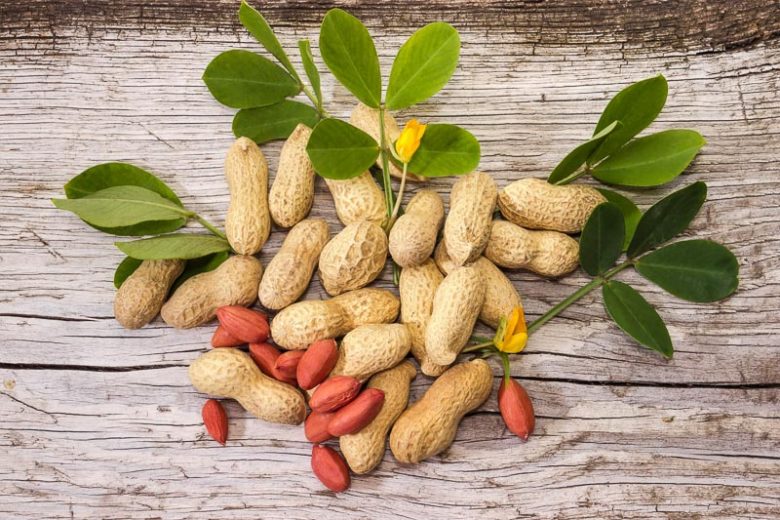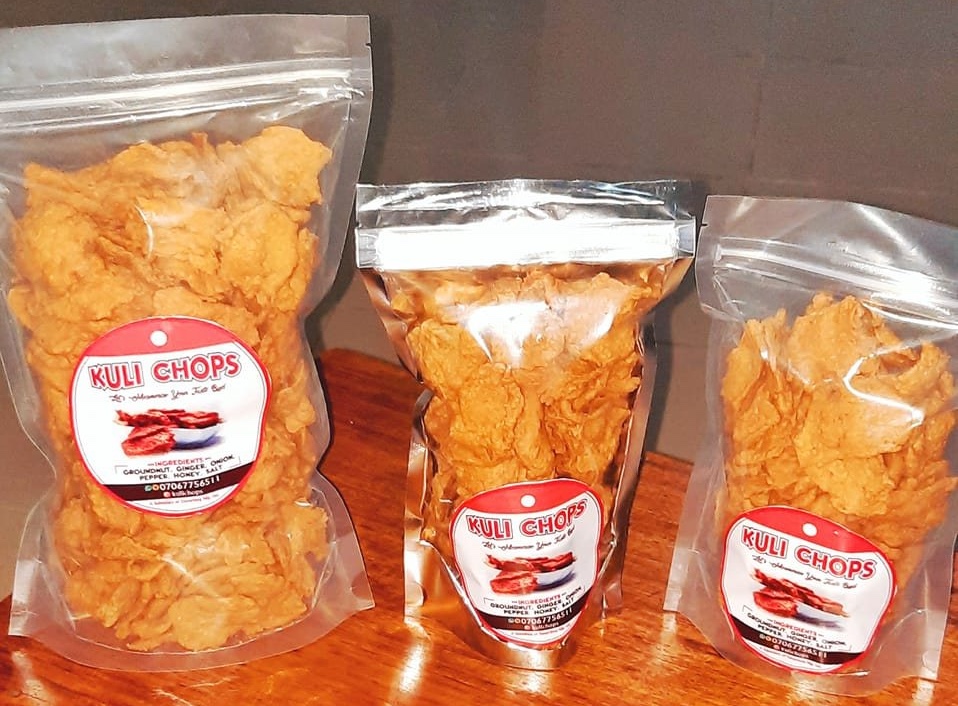The Rise of Kuli Kuli in Nigeria
Kulikuli, commonly referred to as African biscuit among the natives of the Nupe dialect in Niger State, is made from groundnut. The snack is said to have originated from the Nupe people of Nigeria but is consumed across the country and other countries, including Ghana, Benin Republic, and northern Cameroon.
The snack can be taken with Pap for breakfast or with Tuwo, bread cassava or yam, fresh cucumber, cabbage, garri, and even bread for lunch or dinner. Kulikuli is also used in the preparation of stick meat, popularly known as tire, while some use it to prepare spices.
Read more: How to Produce Kulikuli

In Nupe Land in those days, some people used only Kulikuli to break their fast. Farmers popularly took kuli kuli and Kunu before going to farms so they could have the strength to work.
Despite the wide acceptance of kuli kuli, the exportation of kuli kuli is mostly done through friends, relatives, or consumers who live abroad or are going for studies, as there are no formal channels for easy exportation.
Local Nupe women who produce kuli kuli, during one of our interviews, have requested government support in terms of funding to boost the business. They don’t have a befitting environment to carry out the business, and they sometimes buy groundnuts on credit to be able to stay afloat.
Importance and popularity of Kuli Kuli as a local snack.
Kuli kuli has a large market both in Nigeria and abroad. According to another producer whom we interviewed, many of her customers come down to Nupe to buy kuli kuli from her and take it to Maiduguri, Lagos, or even send it abroad. Another said it was through the kuli kuli business that her late mother bought her her wedding dress, and it is still the business she is doing currently.
Read more: How to Package Kuli kuli

Kuli kuli is quite nutritious and contains a lot of vitamins and amino acids. The major ingredient is groundnut, which is a plant protein. However, because of the fat content, kuli kuli is not advisable for consumption in certain disease conditions. Diabetes patients and people with liver problems are not advised to consume this snack. Here are some nutritional facts and health benefits of groundnuts also known as peanuts.
Kuli Kuli Market insight in Nigeria – Adenike Apeji
People are making a lot of money from Kuli Kuli business in Nigeria. As common as this local snack looks, it has turned a lot of people into millionaires. There’s a lot of money in Kuli Kuli.

Adenike Apeji, who started her Kuli Kuli business with just N29,000 and has transformed it into a multimillion-naira venture while empowering local women in Nigeria.
Adenike Apeji is the Creative director of Renee Golden Multi-Venture. A food and beverage company that undertakes many value chain processes in agricultural products. Read to the end for full details of her story.
According to an interview with Adenike Apeji by Sunday Ehigiator of This Day Live Newspaper, she started this business during her service year. She was posted to a village called Kutigi in Niger State, which became a journey of self-discovery. Adenike Apeji, fascinated by the potential of the local Kuli-kuli business, decided to stay and explore this untapped opportunity. For a year, she delved into the intricacies of Kuli-kuli, determined to make something great out of it.
During this time, Adenike Apeji encountered Aminat, a young girl selling Kuli-kuli every morning. Struck by a realization that this business could bring positive change to the lives of individuals like Aminat, Adenike Apeji took action. She established a vocational center in the village, earning recognition and the Governor’s Award in Niger State in 2004.
The journey didn’t stop there. After completing the National Youth Service Corps (NYSC), Adenike Apeji worked in the State Ministry of Finance and later ventured into consulting on accounting software. Over the years, she gained valuable experience in asset management, working with small businesses and eventually progressing to Multinationals.
Driven by a sense of purpose guided by faith, Adenike Apeji moved into multinational customer service, excelling at Etisalat Nigeria. However, a moment of realization struck during her time as a retail advisor at Etisalat. Feeling a deep calling, Adenike Apeji decided it was time to start something meaningful.
Initially planning to settle in the United States, Adenike Apeji lost their peace and sought divine guidance. She returned to Nigeria, motivated to empower women economically. Her focus turned to Kuli-kuli, and extensive research was conducted to improve its quality and acceptance.
Adenike Apeji poured effort into ensuring top-notch content, believing that the quality of the product was paramount. A pivotal moment occurred when the idea to share Kuli-kuli at a party emerged. Surprisingly, the Kuli-kuli garnered more attention than the accompanying chin-chin, indicating its acceptance.
Determined to enhance the product’s presentation, Adenike Apeji sourced packaging from China to match her vision. Challenges arose, such as managing demand and supply, quality control, quantity, and packaging. However, these challenges also signaled the business’s success and potential for growth.
Against all odds, Adenike Apeji remained focused on scaling up the production process to meet increasing demand efficiently.
Maintaining a focus on affordability, Adenike Apeji emphasizes that the core identity of their product, Kuli-kuli, is tied to being accessible. Despite slim profit margins, she persisted in her mission, aiming not to compete with established businesses but to bring light to overlooked opportunities.
Adenike Apeji commenced Renee Golden Multi-Ventures in 2017, starting from her living room with a modest sum of N29,000. By 2019, she had expanded into an office and factory space in Bida, Niger State. The company’s current assets are valued at over N12 million, and in 2021, she achieved a remarkable revenue of N22.5 million.
Beyond financial success, her organization actively contributes to the nation’s economic growth and community welfare. Her company has become a source of employment, with a staff comprising 7 management members and 28 production and sales staff. Additionally, she provides internship opportunities, impacting over 25 students by imparting essential employability skills.
Renee Golden Multi-Ventures goes beyond employment, also focusing on women’s empowerment. Over 200 women have benefited from retail distribution channels, entrepreneurial skills, and vocational training, fostering capacity building for small and medium enterprises (SMEs).
Adenike Apeji aims to empower over 100 groundnut out-growers in Niger State through modernized machinery, training structures, and capacity building to optimize farm yields and minimize wastage.
In her commitment to preserving indigenous products, Adenike Apeji has successfully rebranded and promoted local snacks like Kuli-kuli, Tigernut drink (kunu aya), honey, and local rice in the global market.
This story shows us the potential and opportunities lying around us here in Nigeria. And I believe that if Adenike Apeji can succeed in the face of all the limiting economic policies in Nigeria, you too can.
Leave a comment below if you have any vital questions about Kuli-Kuli business or share your story with us about your own kuli kuli business journey. I’d love to hear from you.
How profitable is the Kuli Kuli business in Nigeria
You can do this business from the comfort of your home. You can package and supply to supermarkets, schools, and hospitals. You can have a stand close to churches, during events, and at fast food joints. You can choose to start selling in bags or painters.
A painter can sell for N4,000 or more. A bag of kuli kuli contains 15 painters. A bag of kuli kuli sells for N35,000. You can also choose to brand a sticker and sell it in smaller containers like nylon, zip-top pouches, or transparent plastic containers with tight lids. This way, you can supply to supermarkets and sell for slightly higher prices because these containers look very nice.

Now let’s do some calculations. A bag of Kuli Kuli is 35,000. If we add N4,000 for waybill, each paint will cost you N2,600. If you sell a paint for N4,000, you’ve made N21,000 from one bag.
If you pack them in smaller packs and sell for N400 or N500 each, you are still making good money. When you add the cost of packaging the kulikuli, you are still making good money from it. You can get 10 pieces of the glass nylon for N200 or 15 pieces of the zip-lock pouch nylon for N2,000.
If you do this for one month, you can make a profit of more than N50,000 or much more, depending on your marketing channels.
There is a lot of money in this business. Thanks for reading up till this point. Leave a comment if you have any questions. Share this blog to your friends if you found it helpful. I love you.


